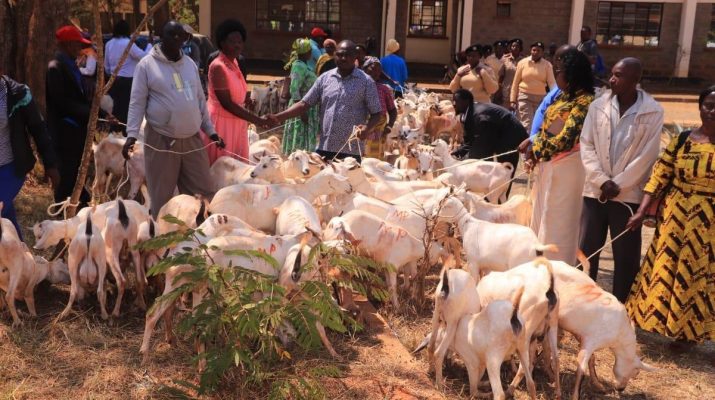By Diana Arodi
The State Department for Livestock has officially launched a livestock restocking program in Kitui County, offering a lifeline to hundreds of households affected by the recent prolonged drought that wiped out thousands of animals in the region.
The initiative, which kicked off on Saturday in Mwingi West constituency, aims to distribute 495 goats per constituency, with 99 vulnerable households in each receiving 5 goats each.
This program is part of the government’s wider efforts to rebuild livelihoods and strengthen climate resilience in arid and semi-arid lands (ASALs).
Speaking during the launch, a senior official from the State Department for Livestock emphasized the importance of timely intervention to prevent long-term economic and social damage in pastoralist communities.
“This is not just about replacing lost animals — it’s about restoring dignity, food security, and hope to families that have suffered the worst effects of climate change,” the official said.
Many residents in Kitui County rely heavily on livestock for income and nutrition. The recent drought had devastating consequences, leaving families without their primary source of livelihood.
The restocking effort is expected to boost household resilience and support recovery efforts.
Local leaders and community members welcomed the program, expressing gratitude for the government’s response.
“We are grateful for this support. Losing our livestock meant losing everything. These goats will help us rebuild our lives,” said Margaret Mutua, a beneficiary from Mwingi West.
The government has promised to monitor the program closely to ensure the animals are well distributed and that beneficiaries receive training on livestock management to ensure sustainability.
“We want this to be a long-term solution. Proper animal husbandry and community ownership will be key to the program’s success,” the official added.
As climate challenges continue to affect vulnerable regions, the livestock restocking initiative stands out as a vital measure to help communities recover, adapt, and thrive once again.

